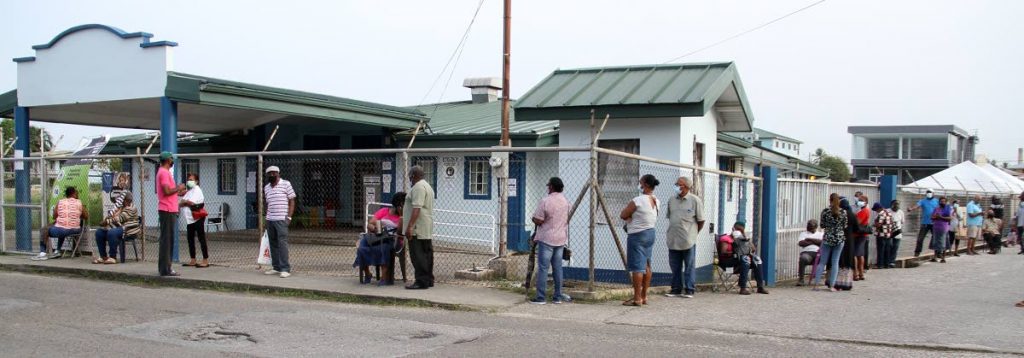Poor handling of pandemic

DR R KUARSINGH
I WRITE to express my frustration with the handling of the pandemic. I write both as a family physician and as a business owner. I write also as a deeply concerned citizen of this beautiful country.
For the past couple of months we have grown accustomed to hundreds of new covid19cases and an appalling number of associated deaths. We have also grown accustomed to lockdowns and curfews which have started to become unbearable.
Like accident and emergency physicians, family physicians are often the first port of call for suspected cases. Typically, patients will either call us for advice or present themselves to our offices seeking care. I have seen over the last 17-18 months a gradual evolution in our knowledge and handling of this novel virus amongst the international community.
In its infancy, we instituted a strict lockdown of the borders, a self-isolation period of 14 days for all suspected cases, and a quarantine period of 14 days for all suspected contacts. People needed to have two negative PCR tests, 24 hours apart, in order to be released back to their homes and lives.
This thinking rapidly changed – firstly in China and Italy as the virus hit both places particularly hard in the early stages of the pandemic. These countries moved towards rapid testing and early isolation of suspected cases. The PCR test, though more accurate, took too long and was therefore deemed to not be feasible or practical in containing the spread.
As the virus took hold of the US, the UK and Europe, we also saw a shift in those countries towards rapid testing. They successfully navigated waves of outbreaks and, as vaccines became available, administered them and have gradually reopened their borders to some degree of practicality.
TT has lagged behind massively. For starters, our country's borders have remained closed for more than a year, our vaccination rates are abysmal, the Ministry of Health has remained stubborn regarding rapid-testing, we have been under severe lockdown for the past couple months and we have seen very little results in terms of a decline in the numbers of new cases or deaths.
Therein lies the problem. In order to successfully contain this virus, the solution has to be to rapidly identify cases, isolate them, trace their contacts and isolate them as well. Any other solution is doomed to failure due to the highly contagious nature of this virus and also its general lack of an effective method of screening such as temperature screening.
And that's the frustrating part. As a physician, I have utilised rapid-testing to quickly identify patients who are suspicious and, as outlined by the Public Health Ordinance and as a responsible medical practitioner, I have submitted all of my cases to the relevant county medical offices for contact tracing. These patients have been rarely, if ever, contacted by anyone from the ministry to initiate contact tracing. The situation is as frustrating as it is embarrassing.

Contact tracing does not need to be rocket science. The medical guidelines have clearly established what we would consider a primary contact of an infected patient. A simple questionnaire can effectively elicit this information. This questionnaire can be asked over the phone to the patient by someone other than a physician or nurse (whose expertise would obviously be required elsewhere dealing with more pressing needs), and information gathered quickly. It literally takes about 20 minutes or so to do this (15 minutes to test a patient and receive a positive result, and about five to ten minutes to quickly elicit these contacts).
If drastic changes are not made by the current management team, if more help is not elicited from the private sector, if these policy changes are not made, and if the quarantine authority cannot better manage its workforce to do these basics tasks, we will not be coming out of this pandemic anytime soon.
The reality is that, in light of our current situation regarding vaccine supply and delivery, we may not achieve herd immunity before December. What are businesses supposed to do until then? Can we not simply institute a health and safety protocol at workplaces mandating that supervisors screen their workers before each workday for symptoms of covid19, sick relatives at home, and daily temperature checks? Can we not mandate supervisors to have their workers tested twice weekly with rapid antigen tests in order to facilitate their operations?
Can we not allow curbside pickup for restaurants as long as their workers are tested regularly, screened daily before work, and pickups by customers are scheduled in an organised fashion?
We have already had to borrow money from the Chinese government to continue to run our country. We have already recognised the reality that the IMF may be another borrowing option with even more strings attached. How long can we continue along this road of severe lockdowns, curfews, and generally unimaginative thinking?
We need to do better. We need to move towards workplace testing using rapid tests. The Health Ministry has to be better at contact tracing and effectively quarantining primary contacts of suspected or confirmed cases, and there has to be more creativity on behalf of those in charge for us to achieve meaningful decreases in the numbers of new cases and deaths.


Comments
"Poor handling of pandemic"